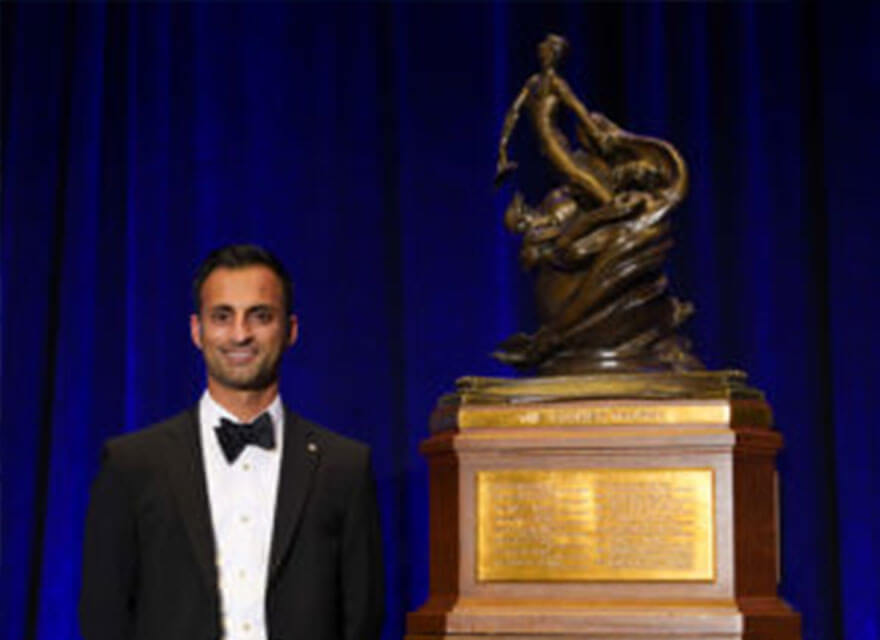
In June 2019, Calspan Corporation was pleased to help celebrate a milestone achievement in aviation safety and research. Calspan test pilot Jameel Janjua was invited to the 2018 Robert J. Collier Trophy Dinner held in Washington, DC, and hosted by the National Aeronautic Association (NAA). The Collier Trophy is awarded annually “…for the greatest achievement in aeronautics or astronautics in America, with respect to improving the performance, efficiency, and safety of air or space vehicles, the value of which has been thoroughly demonstrated by actual use during the preceding year.” The list of Collier recipients represents a timeline of air and space achievements, marking major events in the history of flight.
The 2018 recipient of the Collier Trophy was the Automatic Ground Collision Avoidance (Auto GCAS) Team, which consisted of members from a diverse list of distinguished U.S. Government organizations and industry partners. Up to this point, the Auto GCAS Team’s efforts have saved the lives of eight F-16 fighter pilots, and the work of the many people involved in these programs ultimately led to the “rapid design, integration, and flight test of critical, lifesaving technology for the worldwide F-35 fleet.”
Over the past decades, Calspan is exceptionally proud to have helped play a role in the design and development of many systems that fall under the wider Automatic Collision Avoidance Technology (ACAT) risk reduction effort. Calspan has helped the U.S. Government to develop and refine Auto GCAS programs using Variable Stability System (VSS) platforms, including both the NF-16D VISTA and VSS Learjet.
Most recently, the VSS Learjet was used as the test platform for the United States Air Force (USAF) Test Pilot School (TPS) test management program project titled HAVE Medusa, which began to investigate the potential to adapt these life-saving systems to heavy aircraft. Calspan pilot James Hineline was the project pilot for this program, where he helped to guide students through safely beginning to test a system that has not yet been adapted to non-fighter-type aircraft. In addition, the NF-16D VISTA has been used in many iterations of ACAT programs over the past decade, including the precursors to the USAF’s research efforts to develop an Automatic Integrated Collision Avoidance System (Auto ICAS), which will allow aircraft to prevent both mid-air collisions with other aircraft as well as collisions with the ground. Prior to joining Calspan, Jameel Janjua was the lead test pilot for the USAF for Auto ICAS, which completed a successful demonstration and research test program in 2018. Jameel was also the F-16 project pilot for the Hybrid Flight Control System (HFLCS), which expanded Auto GCAS coverage to early block F-16 aircraft in the USAF and Allied inventories.
Calspan is pleased to provide the USAF and wider U.S. Government with support in developing life-saving technologies that are changing the world of aviation for the better. We look forward to continuing this work through our ongoing collaboration with USAF TPS and other USAF programs.